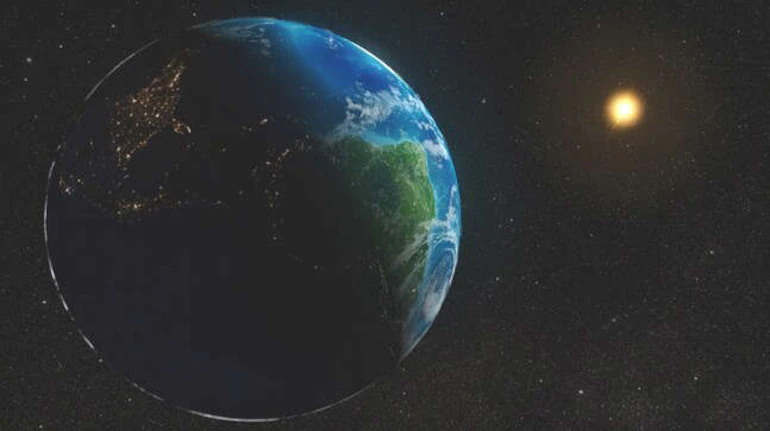A Facebook message posted on several accounts claims that the aphelion phenomenon is unique to 2022, adding that its extremely cold weather effect will last till August.
The post also made its way to Twitter and was broadly circulated on WhatsApp.
I hope it’s true. Today weather is….. pic.twitter.com/XGgO54ZVrv
— MAK Mringo (PhD) (@SnrDirector) June 1, 2022
Advertisement
Most of the messages claimed that due to the cosmological phenomenon scientifically referred to as aphelion, “the earth will be very far from the sun”, and will result in humans “experiencing cold weather more than the previous cold weather till August 2022”.
The message also claimed that the cold weather “will have an impact on flu, cough, shortness of breath”, adding that readers should enhance their immunity “by drinking lots of vitamins or supplements”.
Advertisement

On October 13, 2022, a Facebook group based in Kenya advertised flooring tiles with the caption, “are you affected by this cold season (aphelion phenomenon) we got different flooring solutions that will give you a warm floor and walkway, contact us for a quotation, supply and installation of SPC Tiles, cushion vinyl carpet, floor laminates, luxury vinyl tiles and WPC tiles, all these will give you warm classic and waterproof floor from as low as 1200 per square metre”.
What is the aphelion phenomenon?
Advertisement
According to Kepler’s first law of planetary motion, each planet revolves around the sun in an elliptical path, with the sun occupying one of the foci of the ellipse.
Aphelion is actually an annual phenomenon during which the earth is farthest away from the sun. in line with Kepler’s first law of planetary motion, which established the fact that the earth rotates in an elliptical orbit, therefore, the distance between the sun and the earth varies through the year.
On the other hand, when the earth is closest to the sun, it is referred to as perihelion.
About two weeks after the December solstice, the earth is closest to the sun, at its perihelion, and farthest from the sun, or at its aphelion, about two weeks after the June solstice.
Advertisement
Aphelion occurs in July not August
Checks by TheCable reveal that aphelion and perihelion are clearly not peculiar to the year 2022, and neither was it happening for the first time as suggested by the circulating message on social media.
Advertisement
Though the dates might slightly change every year, the annual natural occurrence often falls in July for aphelion and January for perihelion.
Data published on the official website of the US Navy Astronomical Applications Department affirms that aphelion occurred on July 4, 2022, while perihelion occurred earlier on January 4, 2022.
Advertisement
Also affirming that both phenomena occur yearly, the forecast dates for the occurrence for the year 2023 to 2026 have been published by TimeandDates, a website dedicated to astronomical season calculator.
Aphelion not related to colder weather
Advertisement
An article published by the National Aeronautics and Space Administration (NASA) on its website highlights a common misconception that the “earth’s varying distance from the sun causes the four seasons”. Contrarily, the 23.5-degree tilt of the planet’s spin axis is a more important factor.
“The tilt of the north pole toward the sun in June causes summer north of the equator, while summer south of the equator comes six months later when the south pole is facing the sun.
“The ellipticity of earth’s orbit does cause a small change in solar heating from July (aphelion) to January (perihelion), but it’s not the dominant factor in shaping seasonal weather patterns,” the article partly reads.
The University of Southern Maine in the United States published an article explaining that the “difference in the amount of the sun’s energy we receive (called the solar constant) doesn’t vary considerably between perihelion and aphelion”.
Gloria Okafor, a postdoctoral research scientist, at the Nigerian Maritime University in Delta state, Nigeria told TheCable that “aphelion will neither cause seasonal flu nor cough”.
The university lecturer also refuted the possibility of this phenomenon having any significant impact on earth’s temperature.
Verdict
The claim that aphelion is responsible for extreme cold weather in August and that it is unique to the year 2022 is false. In 2022, the aphelion phenomenon actually occurred on July 4 with no lasting temperature effect till August.
This fact check was produced by TheCable with support from Code for Africa’s PesaCheck, International Fact-Checking Network, and African Fact Checking Alliance network.







